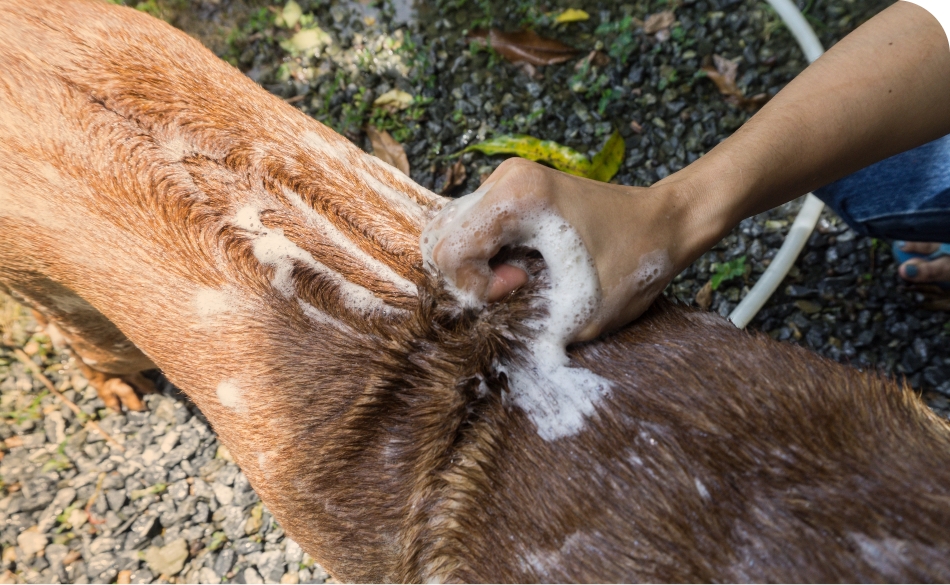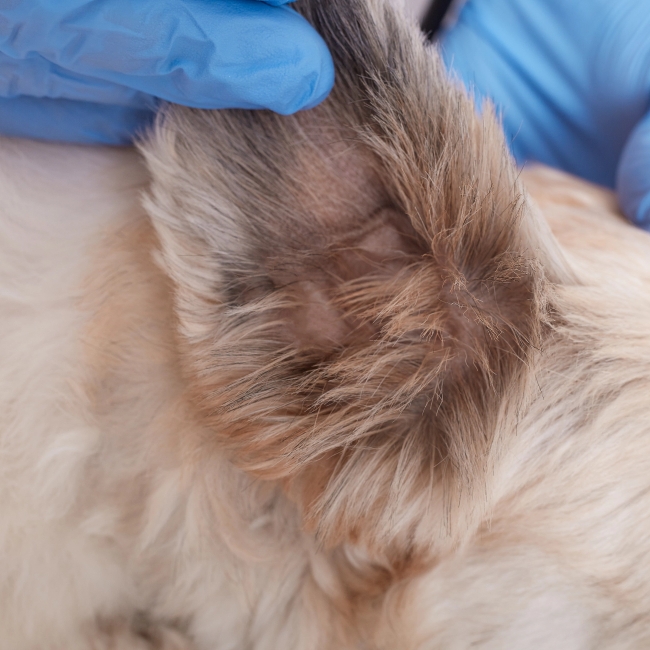
Champlin Park Pet Hospital has you covered with veterinary measures, including regular check-ups, parasite control, vaccinations and much more! These measures will significantly help your pet stay healthy and live a happy life. If you ever have any questions pertaining to your pet’s heartworm, flea, or tick prevention such as whether pest control is harmful, please contact us to discuss any question or concern you may have!
Preventatives are the best way for us to protect against any possible pest exposure. Our goal is to ensure we carry preventative products to keep your pets safe from those potential exposures. There is an abundance of wonderful products out there for your pets! The current products we offer in-house are Zoetis products, which include:
*Only prevents against ticks in dogs
Despite our best efforts, sometimes disease still occurs with our pets. The best plan of action is to stay calm and seek heartworm treatment for your pet. To seek treatment, it is important to recognize the signs. Early detection will greatly improve the chances of recovery.
Common signs of heartworm disease in dogs include:
Having a heartworm-positive pet is a serious condition. It is important to note that not all signs are easy to recognize, which is why it is important to consult with your veterinarian and have regular wellness checks. If you suspect your pethas heartworm disease, or it has been a while since your pet has gotten any heartworm prevention, contact your local vet in Champlin. We provide quality heartworm treatment for dogs.
Cats are also susceptible to heartworm infection. However, the symptoms aren’t as clear. Cats may show signs such as coughs and weight loss. Unfortunately, there is no viable treatment for heartworm in cats. The best way to protect your cat from heartworms is to use products such as Revolution to ensure that there is no exposure. Even if your cat doesn’t go outdoors, there is still the potential of mosquitoes (carriers of heartworm) of getting into your house.

Fleas and ticks are a common pest that can have a profound impact on your pet’s quality of life. It is important to take preventative measures such as using products like Simparica or Simparica Trio.
Fleas are very good at finding ways to get inside! In these cases, it is also crucial to recognize the signs of infestation.
If pets in your home do become infested with fleas, then action needs to be taken as soon as possible to rid the fleas from your pets and home. Here are some good steps to take if there is an active flea infection in your home.
Ticks are another nuisance that can affect your pet’s health. They are commonly found around the head, ears, and legs. However, they are difficult to see because they are tiny and hide in the fur. Ticks love to hide in many places outside, such as tall grass or wooded areas, but they can also be in a variety of outdoor areas. Ticks can also be out and about in any temperatures above freezing! So occasionally on warm days in the winter you can still find a tick on your dog. It is always a great idea to do a petting or brushing session after your dog has been outside. Using flea and tick prevention year-round is a great way to stop ticks from being able to latch on long enough to expose your pets to their infectious diseases, such as Lyme.
If your yard has an abundance of tall grass, or is near wooded or swampy areas, then it’s best to double check for ticks. Here are some tips to help reduce potential tick population in your back yard:
Treating your yard with pesticides is another potential tactic you can use but be sure to check local guidelines on what is safe to use, and make sure your pet isn’t exposed to any of the chemicals. Ultimately, if you are in an area that attracts wildlife such as deer, mice, raccoons, opossums, etc. or if you have water sources nearby, pesticides may be a good way to reduce these potential pests, fleas, ticks, and mosquitoes!
If you suspect that your pet has fleas or ticks, you can act right away and contact expert help in Champlin. Our excellent care team can offer recommendations such as what pest control to use and outline what to do with cats and dogs during pest control. Whether you need a refill of prevention, or your pet needs an annual exam so we can prescribe an appropriate preventative contact us today! Contact an animal hospital near you for more information.